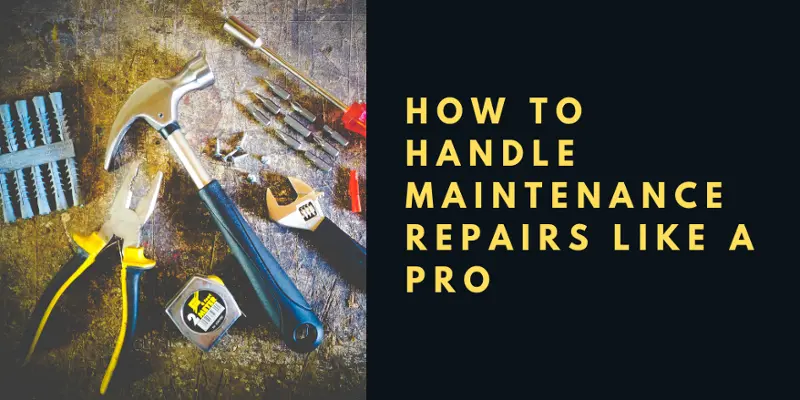People hear the phrase “home warranty” and assume that they should probably have one for their home. After all, a warranty itself is defined as “a written guarantee, issued to the purchaser of an article by its manufacturer, promising to repair or replace it if necessary within a specified period of time.” Sounds great, right? You want to protect your biggest investment.
Home warranties can be great if you’re the person residing in the home. However, using a home warranty on your rental property can actually create more problems for you and cost you more money.
What is a Home Warranty?
Many people aren’t quite sure of the difference between a home warranty and home insurance. Think of a home warranty as a service. You use this service to repair or replace certain items in your home. Home insurance covers damage from an accident or disaster, such as a flood, fire, etc. While home insurance is strongly encouraged, a home warranty is not.
Most people have never heard of a home warranty. They are typically marketed to persons involved in a real estate transaction. Often the seller of the home will include a home warranty in the purchase, similar how a car dealer includes a warranty with a car purchase. Typically the warranty period is for one year.
Home warranties are designed to cover things that your insurance won’t. If your air conditioner breaks down, your home warranty may cover a replacement unit. Home insurance, on the other hand, would only cover extensive damage to the home that came as a result of the machine failure.
This is why home warranties entice many owners. Who wouldn’t want more coverage on their home, their biggest investment? While home warranties seem like a good idea on the surface, they can actually end up costing you money.
What Exactly Does a Home Warranty Cover?
Home warranties typically cover fixtures in the home such as lights and ceiling fans. They also typically cover major appliances and home systems such as heating and air conditioning units, plumbing, and electrical. They can also cover appliances like dishwashers, refrigerators, and microwaves. Make sure you read your policy or the policy you’re considering purchasing to be clear on what the warranty will cover.
How Does a Home Warranty Work?
Let’s say your dishwasher breaks. The first thing you do is file a claim under the warranty. This requires a $65-100 service request in order to start the claim process. The home warranty then assigns the claim to a local vendor. In this instance, a local appliance repairman will assigned to diagnose, and in some instances, repair the dishwasher.
If the dishwasher cannot be repaired or the repair exceeds the value of the unit, the vendor will notify the home warranty. Depending on the warranty provider, they may offer a cash settlement, or they will purchase a new unit, again using one of their vendors. This process usually takes 7-10 days and often will not include installing the new appliance or hauling the old one away.
Why Home Warranties Are a Problem for Your Investment Property
Home warranties aren’t always a bad thing. If you are the person living in the home, they can be beneficial. The warranty is designed to fix issues in your home in a somewhat timely manner and save you money. If you recently purchased the home, a warranty offers peace of mind, especially if the warranty was paid for by the seller.
However, in an investment property, you have to cater to your tenants. Going a week or more without a functioning toilet or microwave isn’t an option for them. The longer they have to wait, the more likely they are to request a rent credit, costing you more money.
Another issue is that home warranty companies typically work with subpar vendors. Their online reputation reflects this. If you Google or Yelp the vendors they use, you’ll usually find that they have between 1-2 stars. So now not only has your tenant waited too long to get their problem fixed, but the work likely was not done as well as it should have been. If the owner would have just sent a good vendor from the start, it would have been resolved much more quickly, resulting in a happy tenant and money saved for owner.
We hope we were able to give you some insight on why home warranties are problematic for you rental property.
If you found this article helpful, follow us on social media. We post daily tips to help you manage your own rental property:
Steve Welty
Subscribe to our Weekly Newsletter
Join the 5k+ homeowners receiving Local Law Updates and Landlord Tips. Delivered to your inbox every Saturday at 6am PST.
Share this:
Get in touch with us:
We make owning rental property easy.
Choose Your Next Step
Good Life Blogs
We believe that education is empowering.

SB 52: California May Ban AI Rent Pricing Tools
California’s SB 52 could ban landlords from using AI to set rent prices. Learn how this bill may impact your rental business and what actions you can take.

Trash Collection Fees Coming to San Diego Rental Properties
Trash collection fees are coming to San Diego landlords. Learn who’s affected, how much it will cost, and how to stay compliant.

How to Turn Vacant Rental Properties into Tax Deductions
Learn how to turn your rental property’s vacancy into potential tax deductions. Discover the rules, strategies, and tips landlords need to know.







